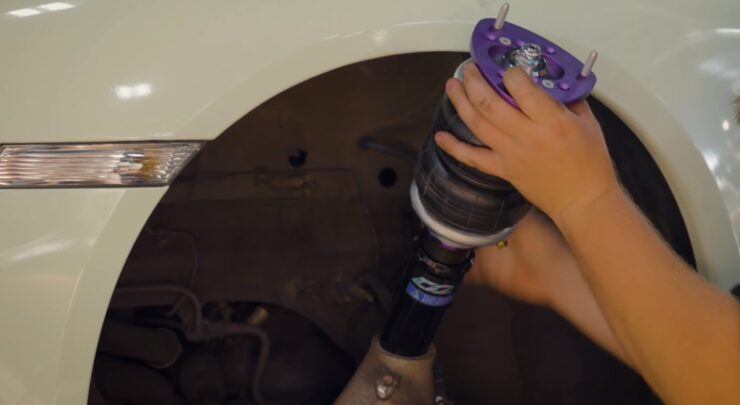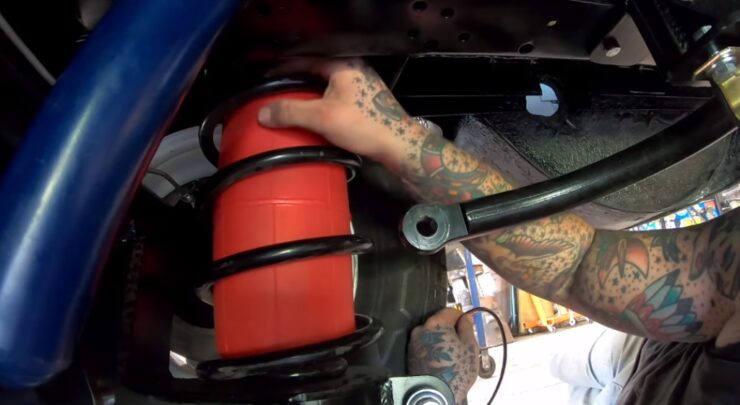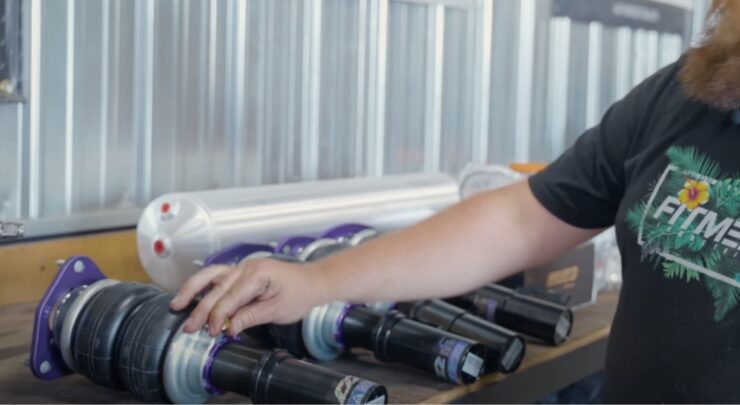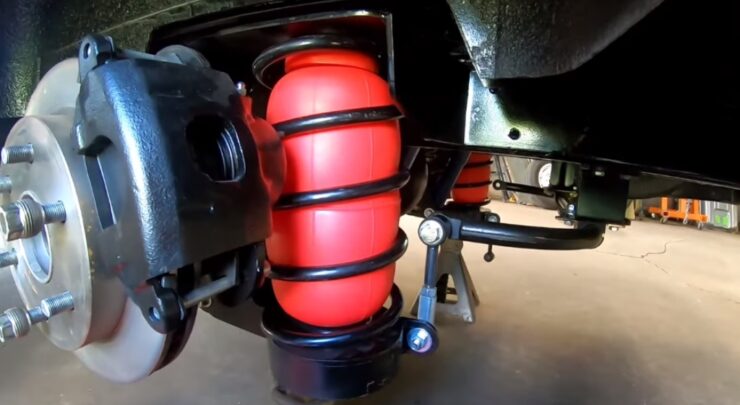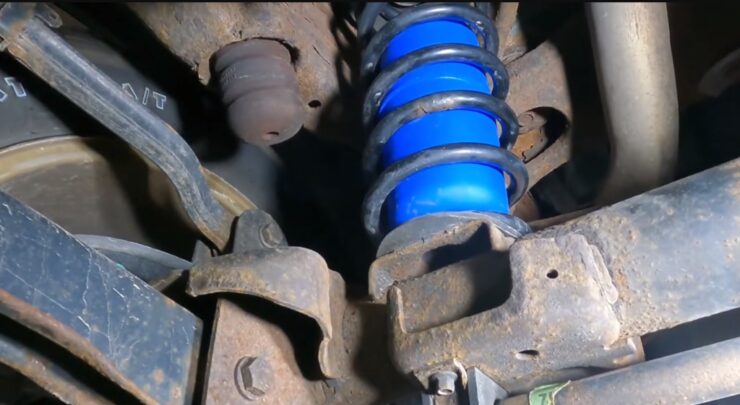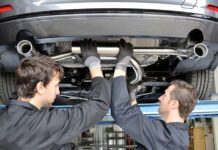
Air springs play a pivotal role in the smooth operation of commercial vehicles. Their significance cannot be understated, especially when considering the weight and load these vehicles carry.
Proper maintenance ensures not only the longevity of the air springs but also the safety and efficiency of the entire vehicle.
The Purpose
Whether you are talking about air springs for larger vehicles, or air springs for commercial trailers such as those at vigorairride.com, their function remains the same. That is, to provide support and distribute the load evenly across the vehicle, ensuring that the weight is not concentrated in one area.
This distribution is crucial for large vehicles, especially when they are carrying heavy loads. By doing so, air springs help maintain the balance and stability of the vehicle, ensuring a smoother ride for both the driver and the cargo.
Another significant aspect is their impact on ride quality and stability. A well-maintained system can significantly reduce the vibrations and jolts that a vehicle might experience on uneven roads. This not only provides comfort to the driver but also ensures the safety of the cargo being transported.
Fun Fact: Did you know that the concept of air springs dates back to the early 20th century? They were initially used in railway carriages to provide a smoother ride for passengers.
Regular Inspection Routine
To ensure the longevity and optimal performance of air springs, a regular inspection routine is crucial.
Start with visual checks to identify any signs of wear and tear. Over time, the constant pressure and load can lead to cracks or other visible damage.
Additionally, monitoring air pressure levels is essential. An imbalance in pressure can lead to uneven weight distribution, affecting the vehicle’s stability.
Pro Tip: Use a digital gauge for more accurate air pressure readings.
Cleaning and Lubrication
Dirt, debris, and contaminants can accumulate over time, affecting the performance of the air springs. Regular cleaning ensures that these foreign particles do not cause premature wear.
After cleaning, lubrication is vital. It reduces friction, ensuring smooth movement and reducing wear. It’s essential to use the appropriate lubrication techniques and products designed specifically for air springs.
Fun Fact: Quick-connect fittings are the most commonly used air fittings, making it easier to connect and disconnect pneumatic components.
Understand how opting for used parts can affect your vehicle’s resale value, as discussed in this article on the subject.
Common Issues
Addressing issues promptly ensures your vehicle remains safe and operates efficiently.
- Air leaks: A common issue, which when identified can prevent more significant problems down the line.
- Uneven height and sagging: This can occur for various reasons, including worn-out springs or imbalanced air pressure.
Correcting Air Pressure
Maintaining the correct air pressure is paramount for the optimal performance of air springs. Proper inflation ensures that the vehicle remains balanced, especially when carrying heavy loads.
Over-inflation or under-inflation can lead to problems. It’s essential to have guidelines for adjusting pressure based on the vehicle’s load and the condition of the roads.
Pro Tip: Regularly check the manufacturer’s guidelines for the recommended air pressure levels for your specific vehicle model.
Replacing Worn-Out Air Springs
Over time, air springs can wear out and require replacement. Some indications that it’s time for a replacement include visible signs of wear and tear, such as cracks or abrasions.
Another way to determine the longevity is by measuring the required pressure to achieve design height. If, over time, the pressure rating increases by 15% to achieve the design height and static idle condition, it’s a clear sign that the air spring is worn out and needs replacement.
Always opt for high-quality air spring, as they offer superior performance and longevity.
When examining the pros and cons of employing an air suspension system, it’s important to remember these essential aspects while maintaining commercial vehicle air spring.
Environmental Factors
Temperature and humidity can significantly impact the performance and lifespan of air spring. For instance, over-exposure to harsh chemicals like gasoline, oil, or solvents can degrade the rubber, leading to premature failure.
If the air spring has been exposed to any of these chemicals, it’s crucial to rinse it with water immediately. Taking protective measures in harsh conditions can prolong the life of your air spring.
Professional Maintenance
While regular checks and maintenance can be done by the vehicle owner, there are undeniable benefits to seeking expert inspections. Professionals have the tools and expertise to identify issues that might not be apparent to the untrained eye.
They can provide comprehensive checks and recommend appropriate solutions. When choosing a service provider, ensure they have a reputable track record and expertise in handling commercial vehicles.
Prolonging Air Spring Lifespan
Your driving habits can significantly impact the lifespan of air spring. For instance, consistently driving on rough terrains without proper maintenance can lead to faster wear and tear.
Adopting strategies like regular checks, timely replacements, and avoiding overloading can help minimize wear and prolong the lifespan of the air spring.
As you focus on preserving the optimal condition of commercial vehicle air springs, similar principles apply to understanding how to care for a car.
Safety Considerations
Air springs play a crucial role in ensuring vehicle stability. A malfunctioning or worn-out unit can compromise the vehicle’s balance, especially when carrying heavy loads, leading to potential accidents.
Regular maintenance and timely replacements are not just about prolonging the life of the air spring but also about ensuring the safety of the vehicle and its occupants.
FAQ
Why are air springs important for commercial vehicles?
They provide support and evenly distribute the load, ensuring vehicle stability and a smoother ride.
How do air springs improve ride quality?
They reduce vibrations and jolts, especially on uneven roads, offering comfort to the driver and safety for the cargo.
Where can I find components for my air spring system?
Companies like Vigor Air Ride offer a range of air fittings essential for maintaining and repairing air spring systems.
How often should I check my air springs?
It’s advisable to inspect them regularly, especially if you notice any changes in ride quality or vehicle stability.
Conclusion
Air springs are indispensable components in commercial vehicles. Their role in ensuring a smooth ride, distributing load, and maintaining vehicle stability is paramount.
A commitment to regular maintenance, understanding the signs of wear, and timely replacements can ensure optimal performance and safety. Remember, the longevity and safety of your vehicle are directly tied to the health of its air springs.

